

Tao Te Ching
Search Sages
Enter all or part of an sage's name or biography in the fields below, then press tab or enter to filter the list of Authors. Click the headings Name or Biography to sort by that column. Diacritics are ignored when searching.
Click on the author's name to go to their page.
| Author Name | Biography |
|---|---|
| Lionel Giles | 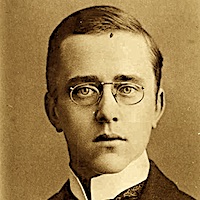 Lionel Giles Lionel GilesVictorian "Taoist at heart" Translator, philosopher, sinologist, and museum curator; Giles followed in his father's footsteps—Herbert Giles who co-created the famous Wade-Giles method of Chinese translation. His translation in 1910 of Sun Tzu's Art of War made monumental strides in accuracy over previous translations. Some of his other translations include The Analects of Confucius, the Sayings of Lao Tzu, the Book of Mencius, A Gallery of Chinese Immortals, and Taoist Teaching of Lieh Tzu. |
| Gia-Fu Feng | 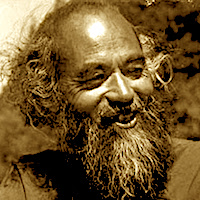 Gia-Fu Feng Gia-Fu FengCounterculture Patriarch, translator, teacher and Taoist rogue The son of a wealthy Shanghai banker, a founder of the Bank of China, Gia-Fu became a millionaire three times in his life and each time gave most of his money away. During the Japanese invasion of China he moved to Kunming and after the war to the USA to study international finance at the Wharton School. Because of the Korean war, he could not return to China and instead wandered around America in an old car. On the West Coast he encountered the Beat Generation and became friends with Alan Watts, Jack Kerouac, Abraham Maslow, Fritz Perls, and his student Michael Murphy, the main founder of Esalen Institut |
| Joseph Stalin | 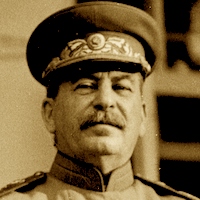 Joseph Stalin Joseph StalinPowerful tyrant who used repression and violence to control almost all of Soviet Russian revolutionary and totalitarian leader responsible for massive "ethnic cleansing," repression, the execution of hundreds of thousands of citizens, and disastrous famines. His efforts supporting Lenin included kidnapping, robbery, and protection rackets. A fierce dictator holding power in Russia for over 30 years, in 1934 he initiated the Great Purge and imprisoned more than a million people in a forced labor Gulag system that executed more than 700,000. Ruthless, cruel, vindictive, and violent; he became increasingly paranoid, a psychopath who enjoyed humiliating and degrading people. Modern historians report that Stalin caused 6 million deliberate killings including up to 90% of all the elected Russian Central Committee members of the 6th through the 17th Congresses. |
| Mikhail Bakunin | 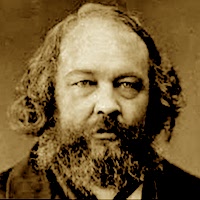 Mikhail Bakunin Mikhail BakuninRomantic rebel, revolutionary anarchist, founding father of modern socialism Revolutionary anarchist, famous ideologue, and founder of collective anarchism; Bakunin promoted anti-authoritarian Socialism which put him at bitter odds with Marx and his followers who wanted to establish authoritarian people's states. This philosophical disagreement grew into a bitter hatred, a slander campaign by Marx, Bakunin's exile and 12-year imprisonment. When his warnings about Marxist states becoming one-party dictatorships proved prophetic, his influence regained credence and his influence spread into modern times through thinkers like Noam Chomsky, Kropotkin, Herbert Marcuse, Neil Postman, and A.S. Neill becoming—in many ways—more influential than Ma |
| George Bernard Shaw | 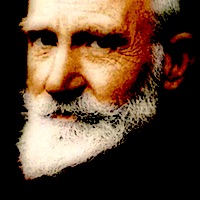 George Bernard Shaw George Bernard ShawUK playwright second only to Shakespeare Playwright second only to Shakespeare, political activist, provocative idea generator, theatre and music critic; Shaw wrote over 60 plays, won a Nobel Prize in Literature, and an Academy Award. He promoted, popularized, and evolved the ideas of luminaries like Nietzsche, Samuel Butler, Marx, Shelley, Blake, and Dickens while using his plays to advocate for political and religious ideals as well as many controversial topics like promoting eugenics, opposing organized religion and vaccinations, criticizing both sides during World War I, and expressing esteem for dictators like Mussolini and Stalin. An insatiable originator, he frequently and intentionally proposed contradictory views, controversial political stands, and declined all public honors. He worked hard encouraging people to think for themselves |
| Hadrian | 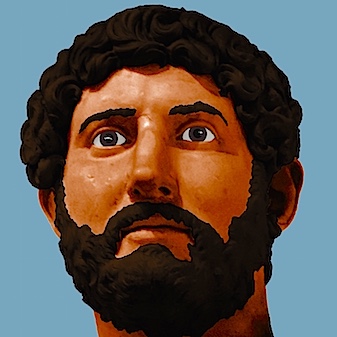 Hadrian HadrianPillar of the golden age of Rome, Hadrian hated war and loved philosophy, literature, and the arts. He prevented corruption, favored the poor over the rich, and governed this empire better than any time before or since. Gibbon called this period of time “the only period in history in which the happiness of a great people was the sole object of government.” He carefully listened to complaints and suggestions later securing the reigns of his successors, Titus and Marcus Aurelius - administrations called by Will Durant “among the most beneficent in history.” He rebuilt the Pantheon in a new style copied by St. Peter’s Basilica and the U.S. Capitol in Washington, D.C. |
| Ferdowsi | 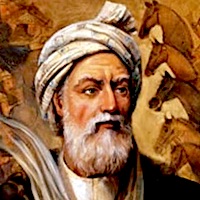 Ferdowsi Ferdowsi "undisputed giant of Persian literature" Philosopher, poet, and one of the world's most influential literary figures; Ferdowsi wrote what became Iran's national epic as well as history's longest poem written by a single poet. Considered the "father of the modern Persian language," he influenced all the writers who followed him, regenerated the Persian language, and revived many cultural traditions. |
| William Montgomery Watt | 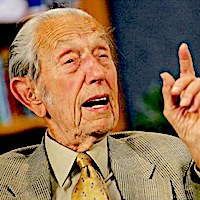 William Montgomery Watt William Montgomery Watt"The Last Orientalist" One of the most respected non-Muslim commentators on Islam, historian, Anglican priest and professor; Watt wrote classic biographies about Muhammad. He thought Muhammad was like an Old Testament prophet and emphasized his efforts to achieve more social justice. His books are criticized by Muslims who have a hard time appreciating Christianity and by Christians who have trouble appreciating Isla |
| Samuel Taylor Coleridge | 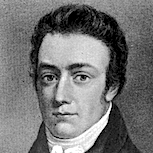 Samuel Taylor Coleridge Samuel Taylor Coleridge One of the most influential English poets, co-founder of the Romantic Movement, prominent philosopher, gothic pioneer and leviathan impact on Mary Shelley, William Wordsworth, Thomas Carlyle, Emerson and American transcendentalism; Coleridge paid for his renown with poor health, depression, bipolar disorder, and a lifetime of opium addiction. Rescuing Shakespeare’s play Hamlet from denigration by critics, he established his reputation as aliterary critic. The instigator of "Conversational Poetry,” using common, everyday language to convey deep images and wisdom, he coined many still-used words like soulmate, selfless, pessimism, relativity, narcissism, actualize, and intensify |
| Marcus Aurelius | 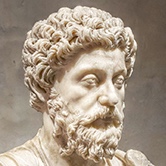 Marcus Aurelius Marcus AureliusOne of the most important Stoic philosophers and last of the "Five Good Emperors,” during a time Gibbon described as, a period when "the Roman Empire was governed… under the guidance of wisdom and virtue.” He was known as a philosopher king and by many as the only Roman emperor who not only spoke and knew wisdom but also lived it. His book, Meditations describes setting up a just government of service and duty and was a favorite of leaders and philosophers from Frederick the Great to John Stuart Mill, from Goethe to Chinese Premier Wen Jiabao, and US president Bill Clinton. |
| Yunmen Wenyan | 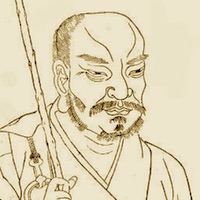 Yunmen Wenyan Yunmen WenyanThe most eloquent Chan master One of the most famous Zen masters in later day Japan, Ummon founded one of the five major Chán schools in China. This school compiled and wrote the Blue Cliff Record, flourished for hundreds of years, and continues today. Supported by the region's king, and famous throughout China and Korea, Ummon rejected the fame and many offered honors while building a new monastery in a more remote location. Many of his recorded statements later became koans—5 listed in The Gateless Gate, 8 in the Book of Equanimity, and 18 in the Blue Cliff Record. |
| F. Scott Fitzgerald | 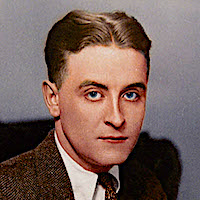 F. Scott Fitzgerald F. Scott FitzgeraldPrototype of "Jazz Age" exuberance One of the greatest American writers, prototype of "Jazz Age" exuberance, and symbol of the "Lost Generation"; Fitzgerald became popular and successful during his lifetime but not respected in the literary world until after his death. His passion for writing interfered with his college pursuits and he had to drop out of Princeton and join the army where he became a student of Dwight Eisenhower whom he passionately disliked. During this time he met his future wife, Zelda Sayre who was the daughter of a state Supreme Court justice but she wouldn't marry him until his first novel became famous and he finally had an income steady enough to support her opulent lifestyle. Her later mental illness, his alcoholism, health and financial problems plagued his later years and he died from a heat attack when only 44. |
| Vimalkirti | 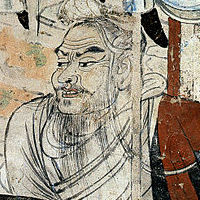 Vimalkirti VimalkirtiClose disciple of the Buddha who extended his teachings to common people One of the Buddha’s closest and most important disciples, Vimalkirti became known for his wisdom and ability to teach Dharma to not only monastics but to everyday, common people. Like the Buddha and born into a wealthy family, he also renounced his position and possessions but his teaching and influence extended back to people not willing to renounce so much. This helped shape the Buddhist traditions into welcoming everyone. Although sometimes considered legendary, teachings attributed to him on emptiness became a central theme in Buddhist philosophy and most traditions consider him an historical figure and a founding influence on the Chan and Zen traditions. |
| Thomas Mann | 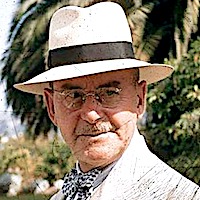 Thomas Mann Thomas MannDeep, psychologically insightful author Novelist, social critic, philanthropist, and 1929 Nobel Prize winner; Thomas Mann became one of the most effective German refugees writing in opposition to Hitler and the Nazi regime in Germany. He became an American citizen and produced many anti-Nazi radio broadcasts in German for the BBC; but, in spite of that, became a target for McCarthyism, had to testify before the House Un-American Activities Committee, and was forced to stop his work for the Library of Congress, and return to Europe. His commentaries on American culture of the time being similar to "how it started in Germany." Mann carried on the philosophical tradition of Goethe, Nietzsche and Schopenhauer; passed it on to writers like Joseph Heller, Yukio Mishima, and Hermann Hesse. |
| Toni Morrison | 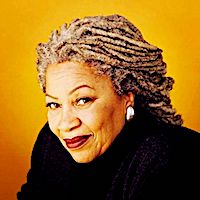 Toni Morrison Toni MorrisonStory-telling voice of American wisdom Novelist, professor, and essayist; Toni Morrison became Random House's first black woman editor. She consistently and insightfully addressed issues like race, feminism, white supremacy, and politics without fixating on extremes and while always keeping on open view. She won the Nobel Prize in Literature, the Pulitzer, the National Book Critics Circle Award, the American Book Award, and she was chosen for the Jefferson Lecture—the U.S. government's highest honor for accomplishment in the humanities. President Barack Obama presented her with the Presidential Medal of Freedom |
| René Dubos | 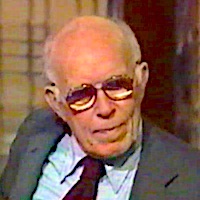 René Dubos René DubosInfluential scientific environmentalist Microbiologist, leading humanist and influential environmentalist; Dubos wrote 32 books including a Pulitzer Prize winner. Creator of the famous phrase, "Think Globally, Act Locally," he empowered and entrusted individuals, local, and small organizations making needed changes rather than relying only on large, impersonal, and out-of-touch institutions. He argued that only local, small-scale organizations can clearly see and respond to their "unique physical, climatic, and cultural contexts." He balanced this sentiment, however, with an emphasis on need for communication with a world order conscious of environmental priorities. While not ignoring our immense global challenges, he conveys an optimistic, positive, and realistic approach. |
| Al-Ghazali | 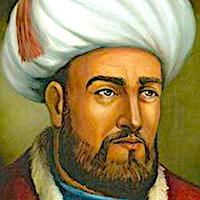 Al-Ghazali Al-GhazaliPhilosopher of Sufism Legal and theological scholar, rationalist, spiritual philosopher, and Sunni mystic; Al-Ghazali became known as a Mujaddid, a once-in-a-century Muslim "renewer of the faith." Believing that the original Islamic teaching quickly became corrupted, he worked to bring the original wisdom back into awareness and—as a side-effect—brought a critique of the Aristotelian approach that facilitated the advancement of European science. He helped integrate Sufism into mainstream Islam and his teaching became a profound influence and foundation for Islamic business ethics and practice. |
| Commodus | 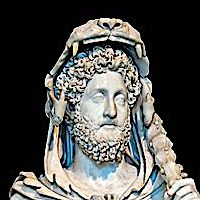 Commodus CommodusHow ironic that we still consider Marcus Aurelius such a profound teacher, such an inspirational example of a philosopher/king almost 2000 years after his life while his son gives such terrible evidence of his being such a failure as an educator and father. While Marcus symbolizes the height of Roman culture, Commodus marks a steep decline, the beginning of the end. He constantly drank, gambled, wasted public funds, and maintained a harem that included 300 girls as well as 300 boys. Described as "more bestial than any beast," he abandoned any vestige of ethics or integrity. Cruelty dominated his approach as he watched the society around him fall apart. |
| Ludwig Wittgenstein | 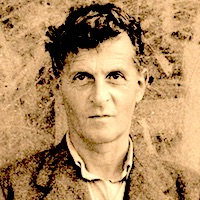 Ludwig Wittgenstein Ludwig WittgensteinOne of the world's most famous philosophers From one of Europe's most wealthy families, Wittgenstein inherited a vast fortune and then—believing that money hinders philosophy—gave it away to artists, writers, and to his brothers and sisters. One of the world's most famous philosophers, he worked incognito teaching in remote Austrian villages and in hospitals during World War II. He kept most of his writings unpublished until after his death when his books like Philosophical Investigations became recognized as some of the most important books of 20th century philosophy. His strong influence continues today in almost every field of social sciences and the humanities. |
| Jeanne de Salzmann | 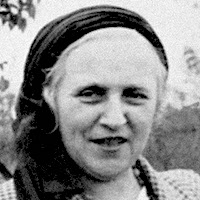 Jeanne de Salzmann Jeanne de SalzmannFollower, preserver, and promoter of Gurdjieff's teachings Eurhythmics dance teacher, daughter of a famous architect, and married to "former dervish, former Benedictine, former professor of jui-jisu, healer, stage-designer, inventor, and the greatest of living painters," Alexander de Salzmann; Madame de Salzmann met Gurdjieff in 1919, studied with him closely, and continued promoting and organizing his teachings for the next 71 years. She founded, help fund, organized or taught in Gurdjieff Institutes and Foundations in Paris, New York City, London, Caracas, and many smaller groups in many parts of the world. |